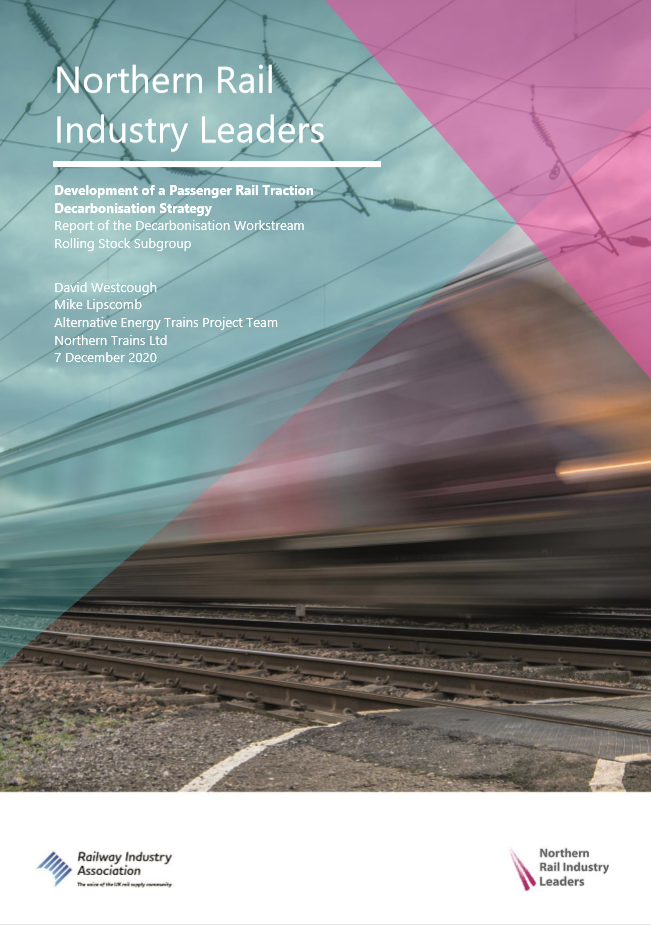Reports
Each Workstream will be publishing a paper exploring their respective area in more depth.
Decarbonisation Paper
Development of a Passenger Rail Traction Decarbonisation Strategy explores the options for decarbonising the North's rolling stock. It is the first of two papers to be published by the Workstream group and highlights that:
- The railway network should play a key role in the Government’s levelling up agenda and the decarbonisation of the railway can play a crucial part;
- Railways in the North of England are heavily dependent on diesel traction, so alternatives like electrification, battery and hydrogen will need to be implemented;
- Train operators will need to deliver rail decarbonisation strategies for their routes; and
- Early deployment of schemes and development of low cost solutions will be essential.
Read the Paper
Innovation White Paper
This report sets out a number of recommendations for Transport for the North on how it can embed innovation throughout its work. The work was led by the NRIL Innovation Group following a series of workshop and engagement sessions with TfN over the last 18 months.
It identifies five key challenge areas for innovation at the transport body and set out recommendations for each area. These include:
- Awareness: Develop a plan for identifying, defining, and prioritising TfN challenge statements and communicating these widely to solution owners.
- Funding: Define an innovation funding strategy for TfN that specifies sources and means of accessing funding for solution owners.
- People: Make innovation a key pillar of TfN’s people strategy, ensuring that the leadership and corporate behaviours support an organic culture of innovation.
- Procurement: Embed procurement and contracting approaches in TfN that support and drive innovation, its exploitation and commercialisation
- Supply Chain: Develop a plan to harness the inherent capability of northern SMEs, consultants and universities.
Read the Paper